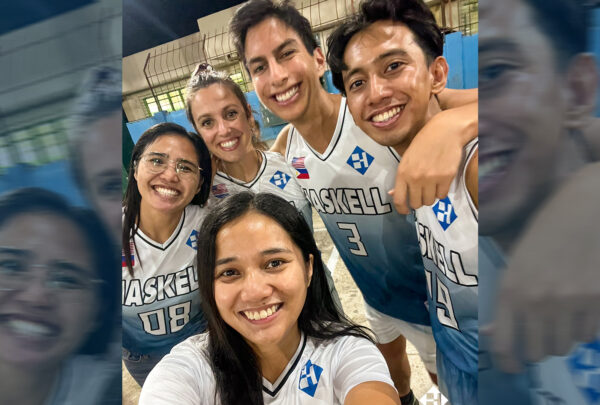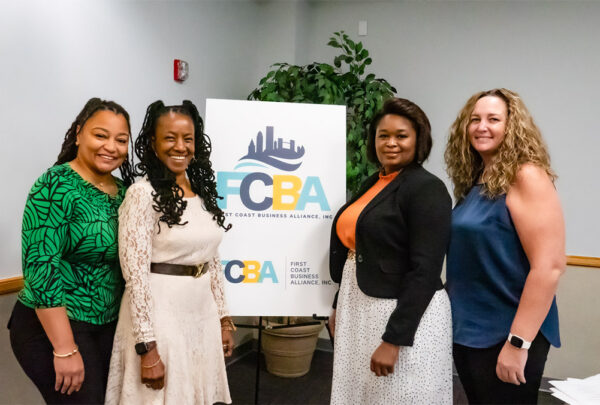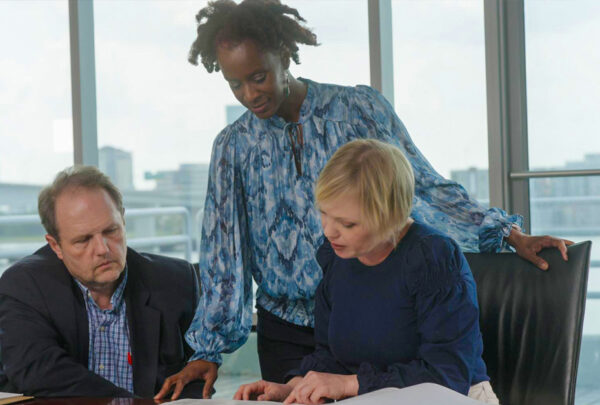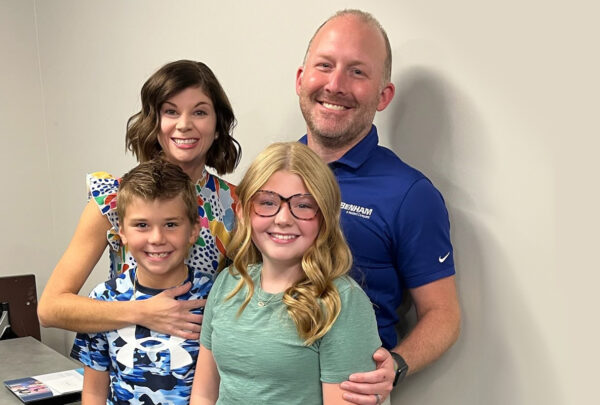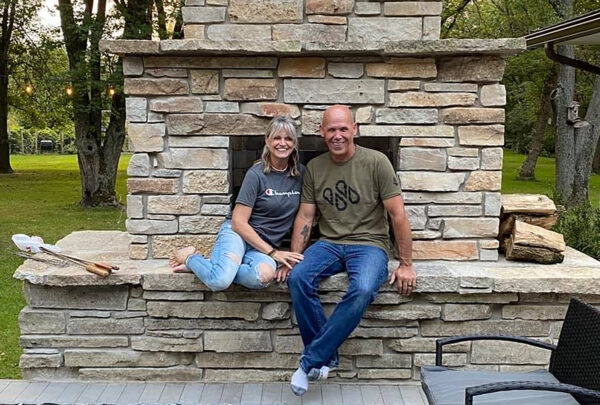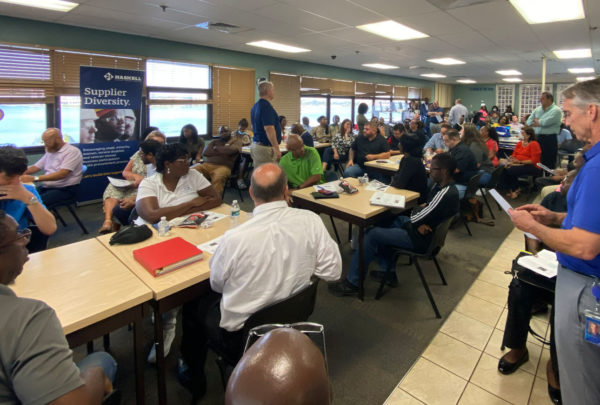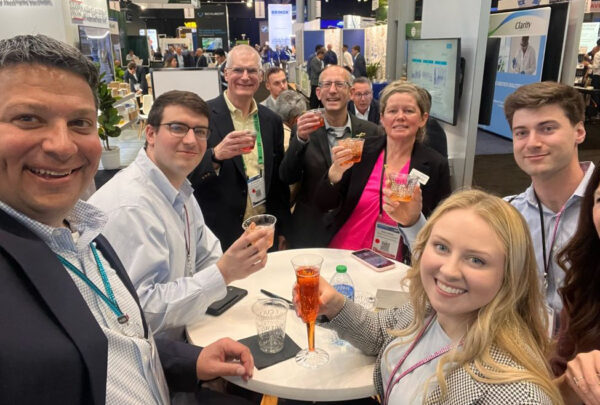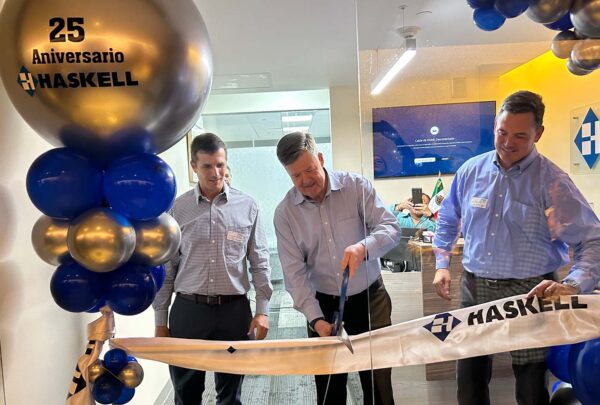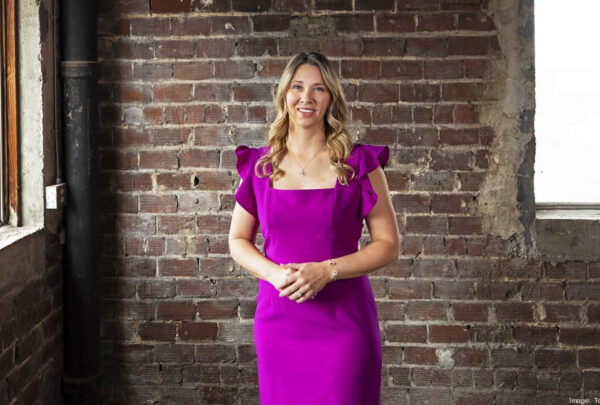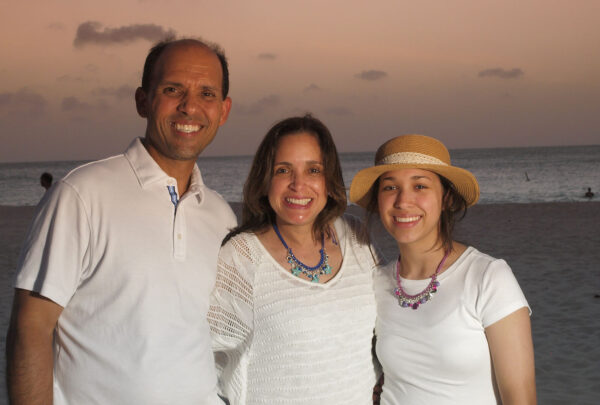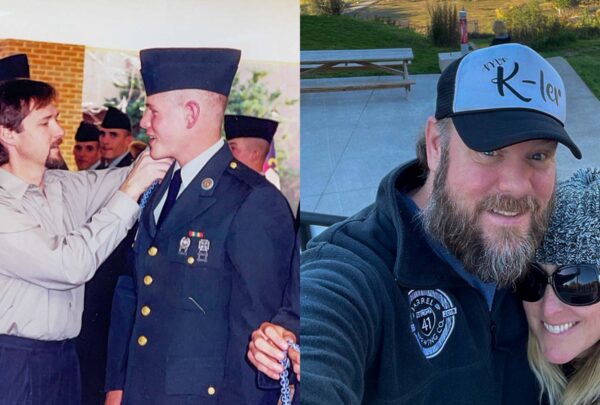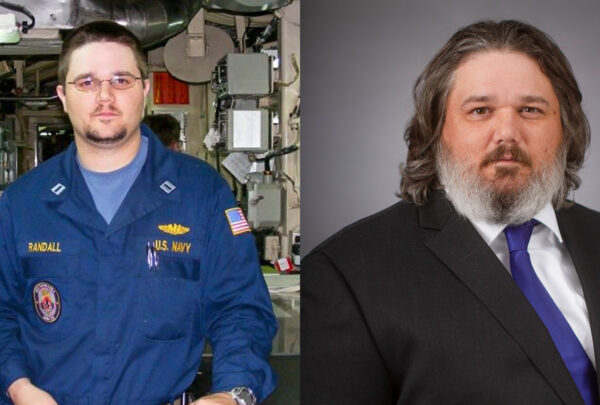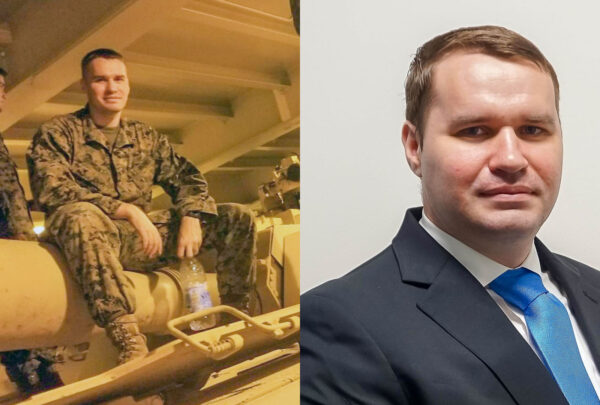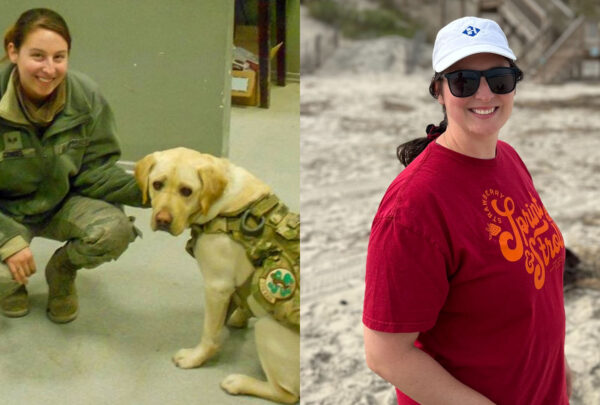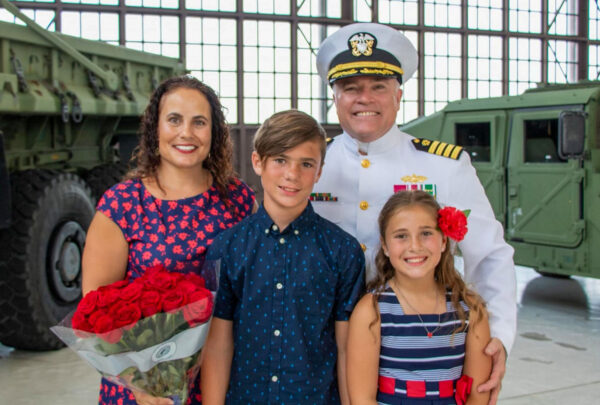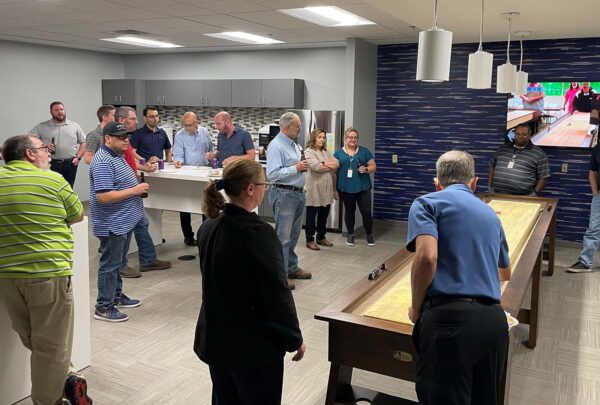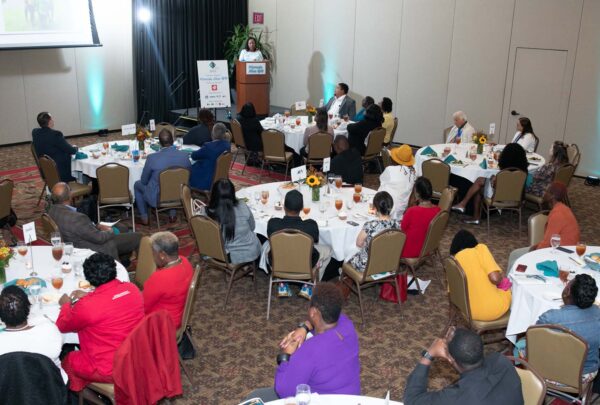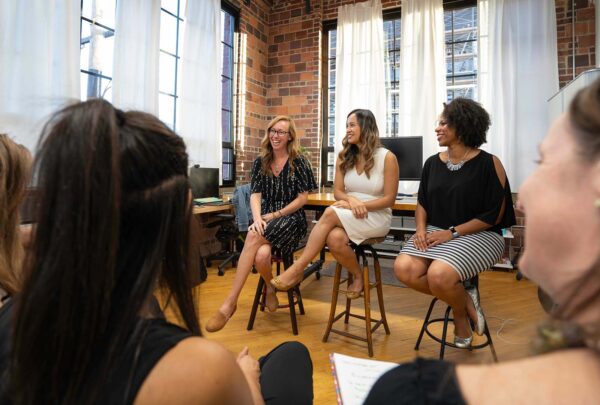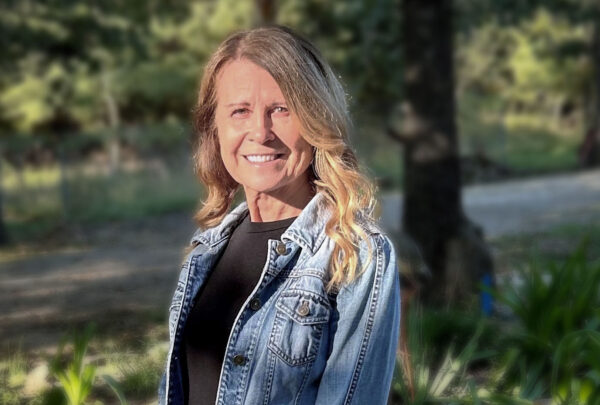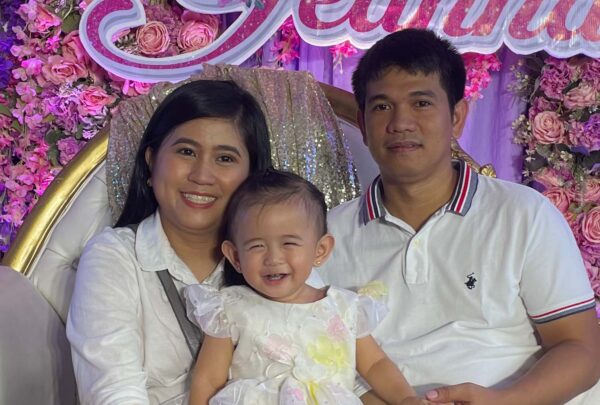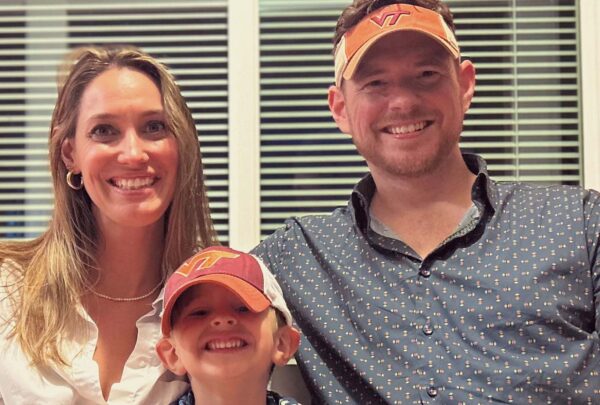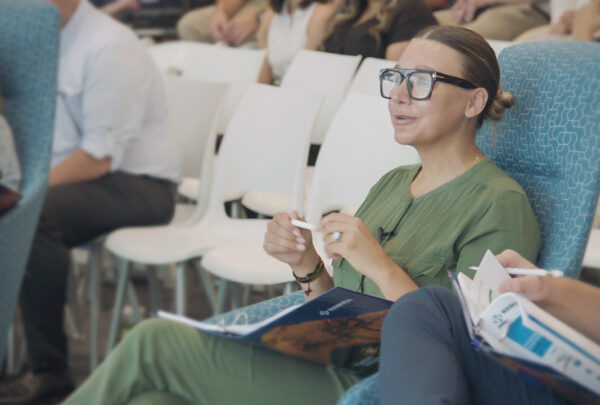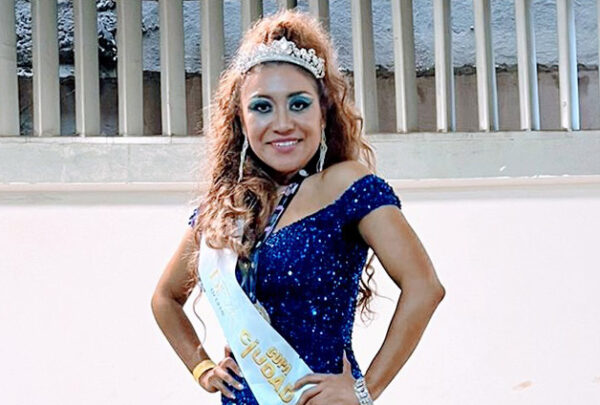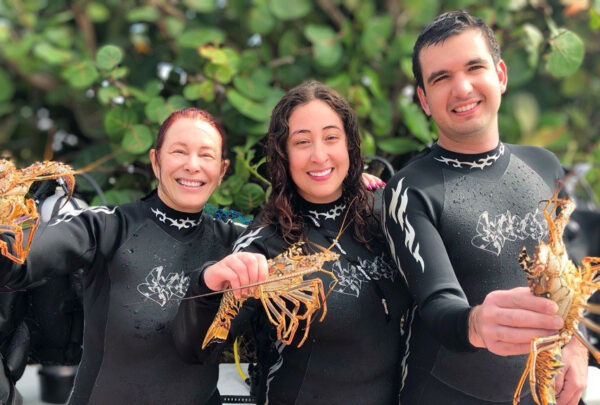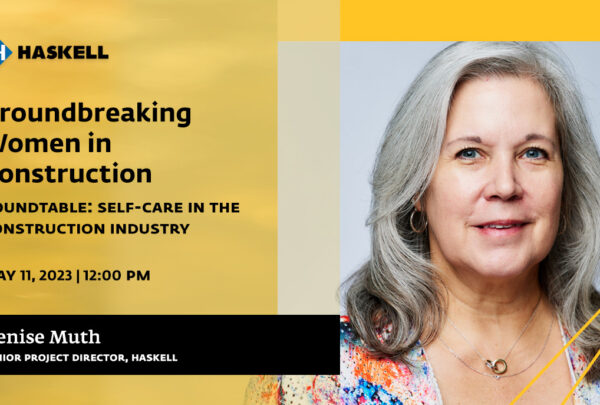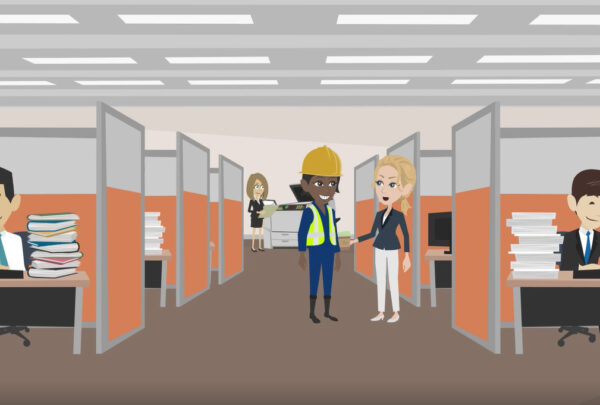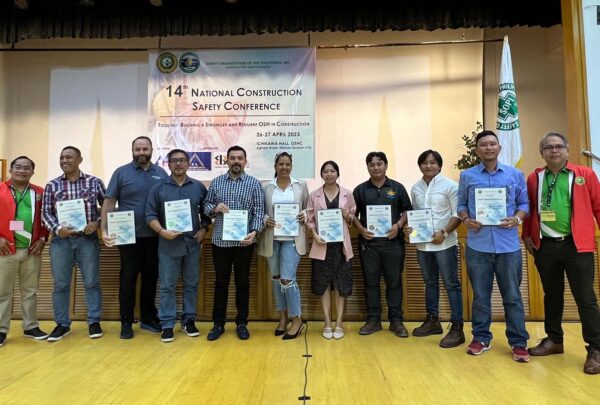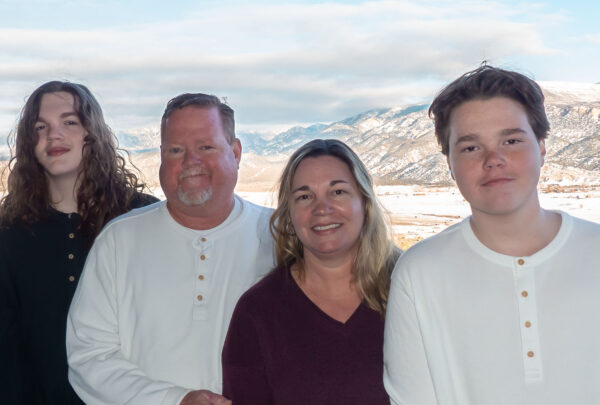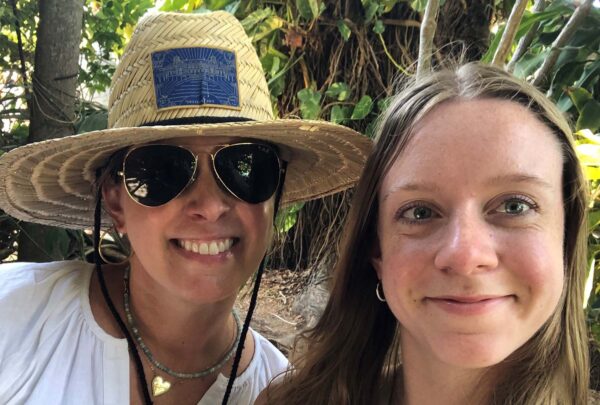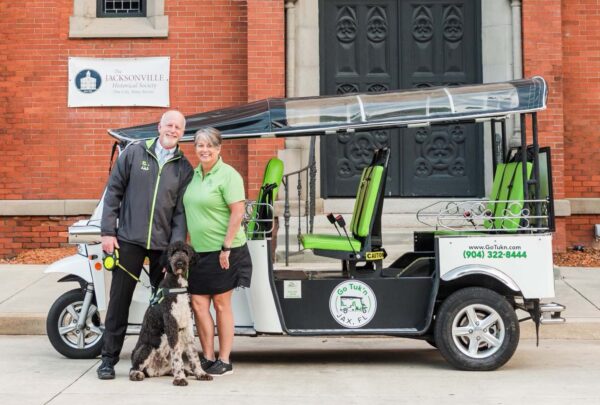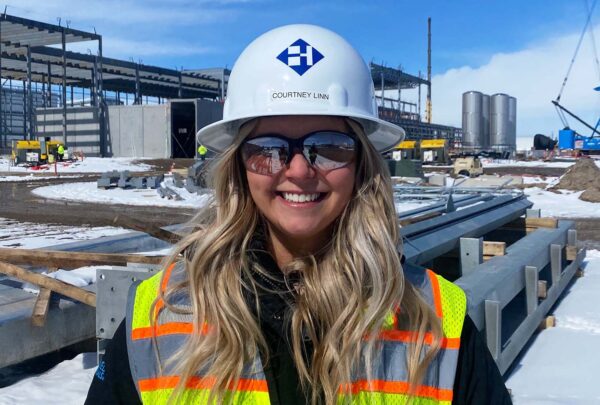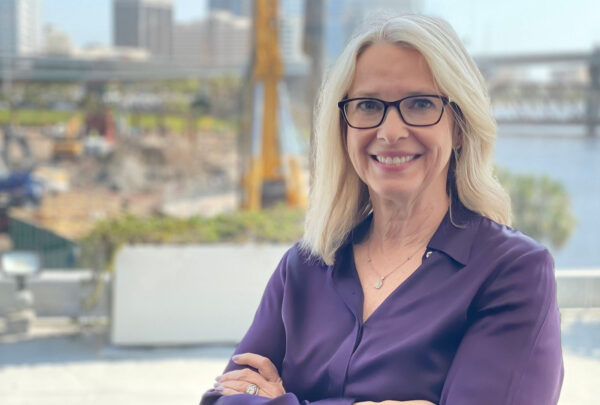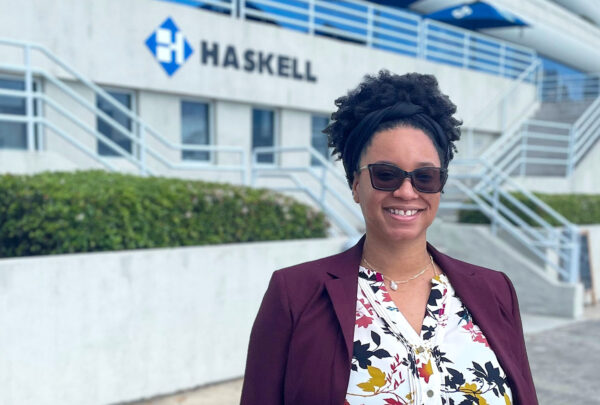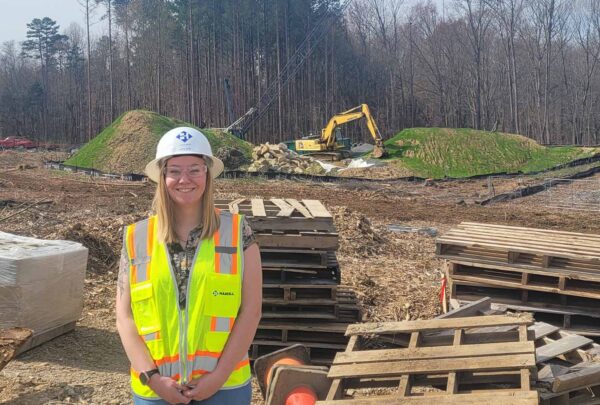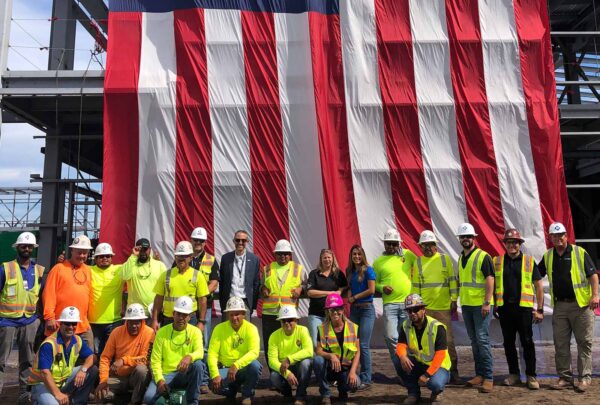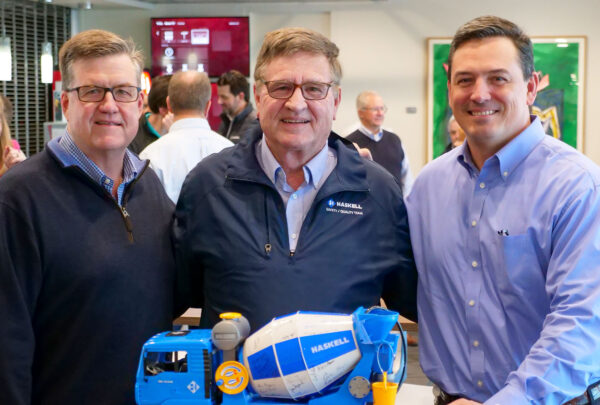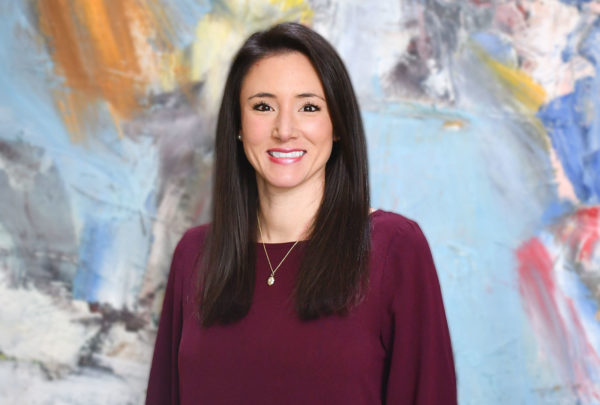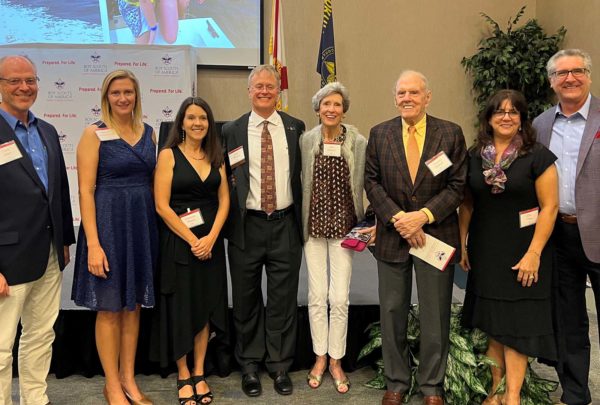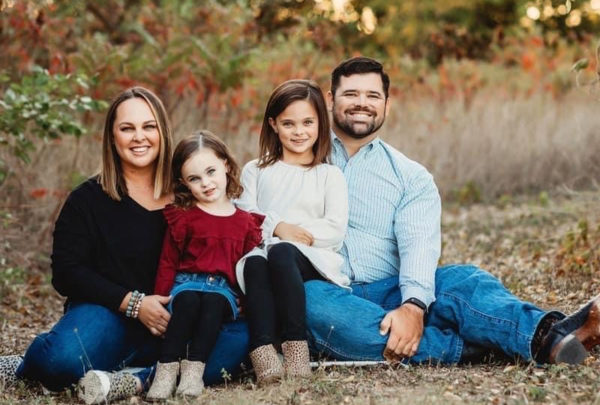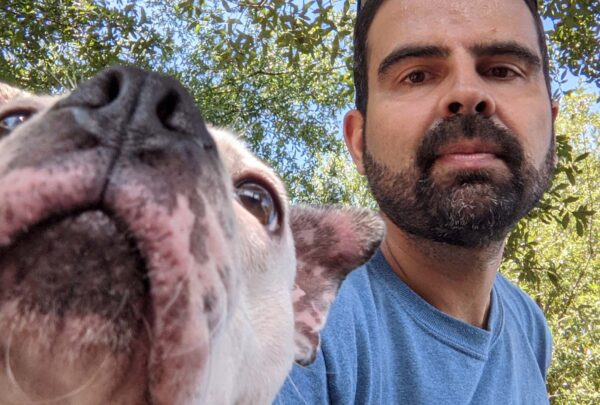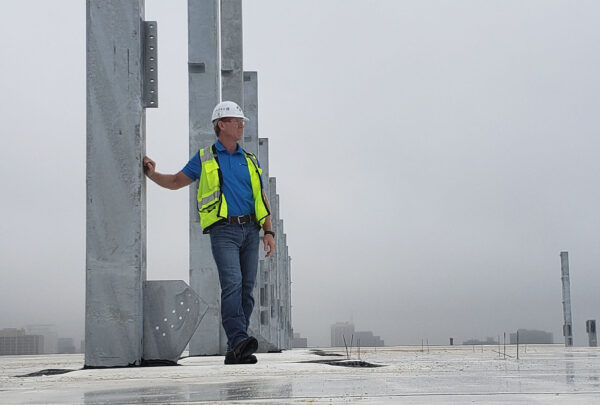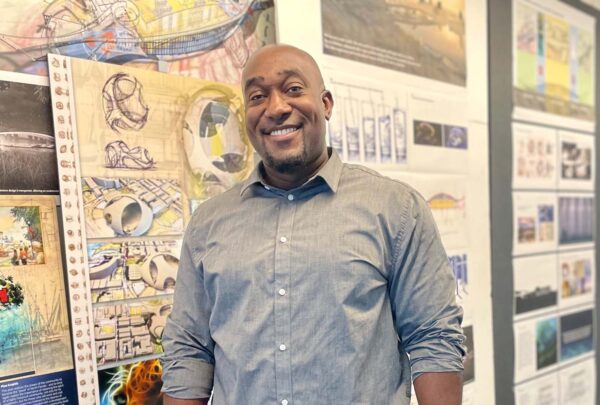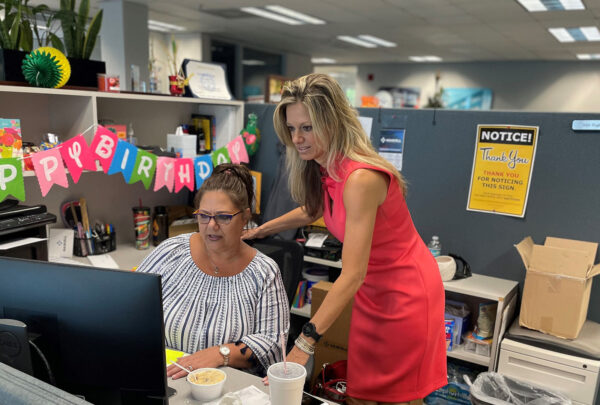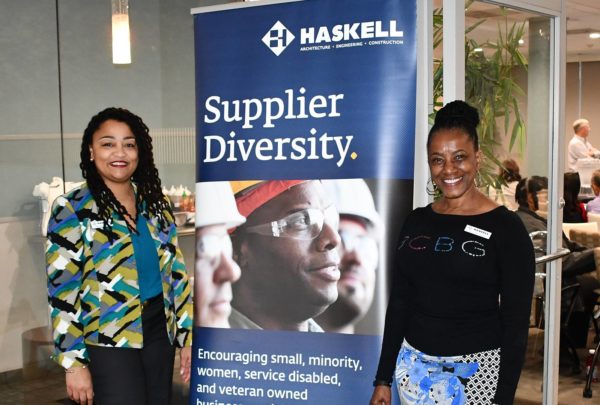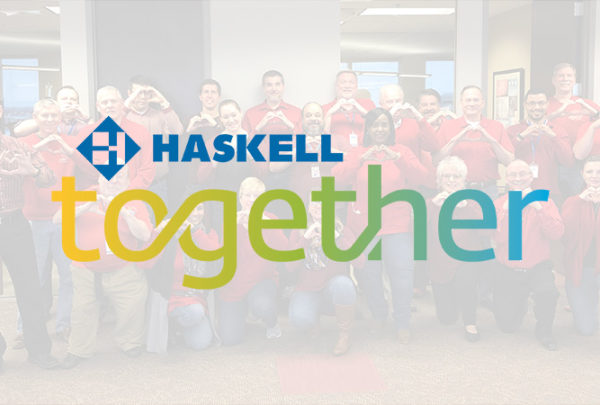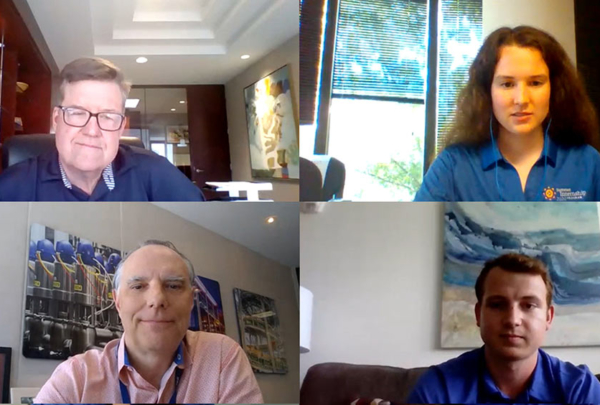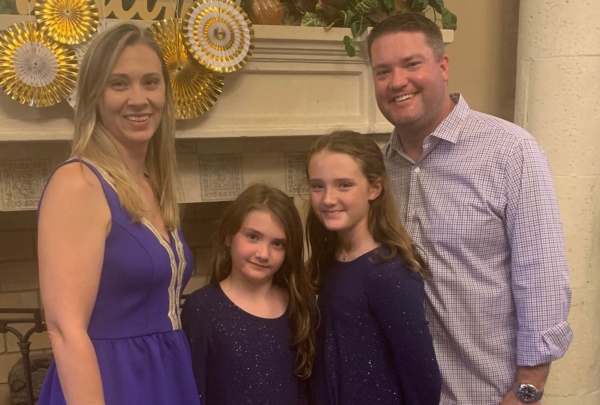Antonio Valdivia had ridden motorcycles for 30 years, everything from mopeds to Harleys. On this particular morning in August 2020, the day was starting with such promise as Valdivia cruised along Dallas Parkway on his sleek Honda CBR superbike.
Yes, COVID was raging, the world was largely in lockdown and Valdivia was putting long hours into his career as a Haskell Senior Design Manager. But that day he headed off to Haskell’s Frisco office to sign the paperwork that would represent a professional pivot within the Haskell community. Change, he thought, could be good for his career, good for his family and good for him.
Then a distracted driver cut him off.
Valdivia careened through the air, slamming into a concrete barrier not once, but twice.
The impact tore off some of his toes and left a gaping hole about the size of a football in his leg. His fibula and tibia were shattered. The list of broken bones and resulting injuries was long. He suffered third-degree burns and internal bleeding. The fact that he came out of it alive is amazing in itself.
Before the accident, Valdivia was an energetic, athletic man who grew up in Mexico City and followed in his father’s footsteps to become a design architect. He came to the U.S. to earn his Master of Architecture and Architectural Design from Texas A&M and joined Haskell upon graduation. He was well-known and popular throughout the company, renowned for his skill as a design architect, his project photography and his friendly, outgoing demeanor.
Warding Off Amputation
In an instant on August 14, 2020, Valdivia’s life changed tragically, yet perhaps for the better.
Today he is a transformed man who just celebrated his 20 years with Haskell. That professional pivot – a temporary but long-term move to the West Coast to concentrate on a major client – didn’t happen. Instead, he’s now the Design Director of Architecture and Engineering in the Central Region, still based in Haskell’s office in the Dallas Metroplex.
The story of Valdivia’s transformation begins in a Dallas-area emergency room. Doctors were preparing to amputate his leg when he woke up after the accident. Try and salvage it, he begged.
They tried. He tried. There was more surgery. There were skin grafts, but regaining his mobility and returning to his old, energetic self, proved a long, difficult battle. Pain, hopelessness and depression gripped Valdivia. The days and nights blurred together for nearly two years. He rarely moved from the couch or bed.
“I hit bottom several times,” he said.
But then a man, a below-the-knee amputee with a prosthetic, walked into Valdivia’s life.
The man didn’t wobble. He didn't wince with pain. He just walked.
“I said, ‘I want that,’” Valdivia recalled.
And so began another chapter in his life when he told his orthopedic doctor to cut off his leg.
“The most important thing for me was to regain what I lost for two years,” he says.
He’s done that – and then some.
Valdivia initially lacked the confidence to walk on his prosthetic leg, perhaps a hangover from the nearly two years of defeats and depression. But then he did it during physical therapy. He walked. And he did it again. And in time, he was taking part in a Daddy-Daughter dance. A sense of wonder began to return to his world.
Discovering the Adaptive Training Foundation
Several months into this new life Valdivia came upon a documentary about the Adaptive Training Foundation (ATF), a mission-driven Dallas-area nonprofit founded by a former NFL player to help U.S. military veterans who had suffered life-altering injuries find life-fulfilling adaptive performance training. It subsequently expanded to offer the same services to first responders and civilians.
The documentary captured Valdivia’s attention. On the foundation’s website, he learned about an adaptive training program called ReDefine. ReDefine provides adaptive athletes with nine weeks of customized training with a group of other individuals experiencing similar struggles. Not only do athletes receive physical training, but they receive tools to redefine their sense of self through mindfulness and mental training.
He thought about it: Was he done learning to live life as an amputee? Was he already at the finish line with his transformation? The answer was no. He applied.
Out of some 150 applicants, Valdivia and 10 others were picked for the intense, 100% free program. It costs about $10,000 to sponsor each participant. The Texas Rangers Foundation sponsored Valdivia’s group, known as the 27th Class.
To better understand ReDefine, think of it as CrossFit meets cognitive behavioral therapy. Each session begins and ends in what is called the “Recovery and Recharge Room.” Valdivia said it was a time for “getting the demons out.”
“There are a lot of people who walk in there with suicidal desires,” he said. “And it can be really tough to get people out it.”
Each of the participants in the 27th Class had a different story about who they were and who they’d become. Each had a desire to push themselves both physically and mentally.
A few were injured on the battlefield. A handful had spinal-cord injuries. One survived a suicide attempt and became an amputee. All set individual goals.
“Their stories were just incredible,” Valdivia says.
With the ReDefine, Valdivia’s goal was to use his prosthetic and his other leg to jump onto a box some 20 inches high. He wanted to be active again. He wanted to shed the weight of languishing in bed or on the couch for nearly two years with his bad leg. He wanted to shed his own demons. And he wanted to be the best dad and husband he could be.
“I missed doing stuff with my daughters. I missed living my life,” he said.
In April, when he entered the ReDefine program, another chapter in Valdivia’s transformation began.
Run mostly by ex-military trainers, they teach grit. They understand the struggles of overcoming mental barriers.
“They teach you that if there is a storm you run to it, not away, because eventually it will catch up with you and last longer,” he said.
‘Your Perspective Changes’
The program did more than just make him strong. It made him compassionate. It made him aware of the hidden struggles many amputees face.
“Many walk through the doors thinking that people see them as less because they are disabled, but it is completely the other way around,” he said. “Especially for the folks that truly were in battles and lost limbs in the wars. They teach you that what you have gone through makes you stronger.”
Valdivia says his colleagues and superiors at Haskell were understanding and flexible, allowing him to create a work schedule around his ReDefine program. For that, he expressed gratitude and admiration. The feelings are mutual among his colleagues when they hear the story of Valdivia’s transformation.
“Going through the program was a lot of help for him because he got to see other people like him going through challenges,” said Peter Skirbst, Haskell Vice President of Integrated Design for Private Facilities Architecture and Engineering. “He came out strong. He’s still loaded with energy. It’s amazing. It’s amazing to me how he’s maintained his attitude throughout the entire process.”
An over-achiever by nature, just before the motorcycle accident Valdivia was working “10, 11, 12 – 15-hour days.” Now he’s found balance in his life.
“Your perspective changes,” Valdivia said. “There’s a reason why the car has a bigger windshield in front of you than the rear-view mirror. It’s because there is everything right in front of you. The rear view is the stuff you left behind.”
Valdivia has left behind the anger. He’s left behind the self-loathing.
“The accident has a meaning, and there’s a reason that it happened,” he said. “Maybe it was for me to be able to help somebody else. If I can get one person to avoid suicide by sitting down and talking to them, then my day’s work is done.”
As Valdivia shares his story, the one that began in August 2020 and taken him to where he is today as a graduate of the Adaptive Training Foundation’s 27th ReDefine Class, his eyes fill with tears of joy.
“What a journey. It has felt a little long with some points having a learning curve,” he says as a broad smile splits his face and tears roll down his cheeks. “I’m happy. I’m happy where I am.”
If you or someone you know is contemplating suicide, or struggling with mental health or substance use, call 988 to reach the National Suicide Prevention Lifeline 24 hours a day, seven days a week.
5 Questions with Antonio Valdivia
What drew you to your career?
I come from a family of very creative architects. My grandfather and father influenced me and made me interested in and love design. Ever since I remember, I was at job sites with my dad on Saturdays. Architecture is something that makes you be in others’ shoes in order to understand the specific needs of different clients and to design specific solutions to sometimes unique requests.
Where is your favorite travel destination, and why?
The beach and being around water. I’ve always had a connection with the sound of water, it’s like a magnet to me and it also brings me to a complete relaxation point.
Complete this sentence: I couldn’t make it through the week without …
Spending family time with my wife and daughters. They are the fuel that keeps me going.
Who is your role model and how have they influenced you?
My brother, he’s always been the one person I look up to and the one that taught me so much about driving to be the best you can be. He’s someone that always pursues his dreams and works to get to them. He has taught me the importance of family by always being there to support me.
What does being a Haskell team member mean to you?
Haskell to me means “Family”. I’ve spent 20 years of my life being part of Haskell because No. 1, I love what I do, but also, I love the people. Some of my best friends are somehow, if not fully related to the Haskell family. Haskell has had my back several times over my career helping me grow professionally and personally.
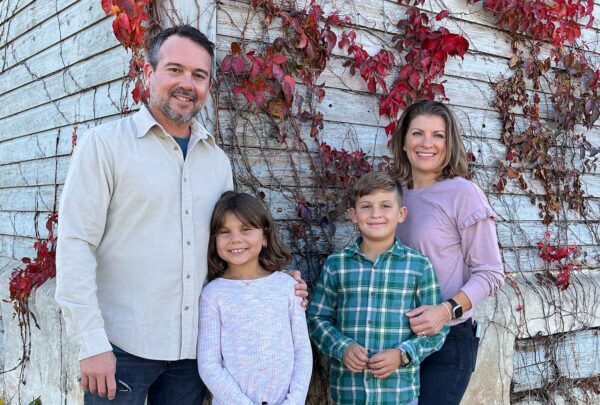
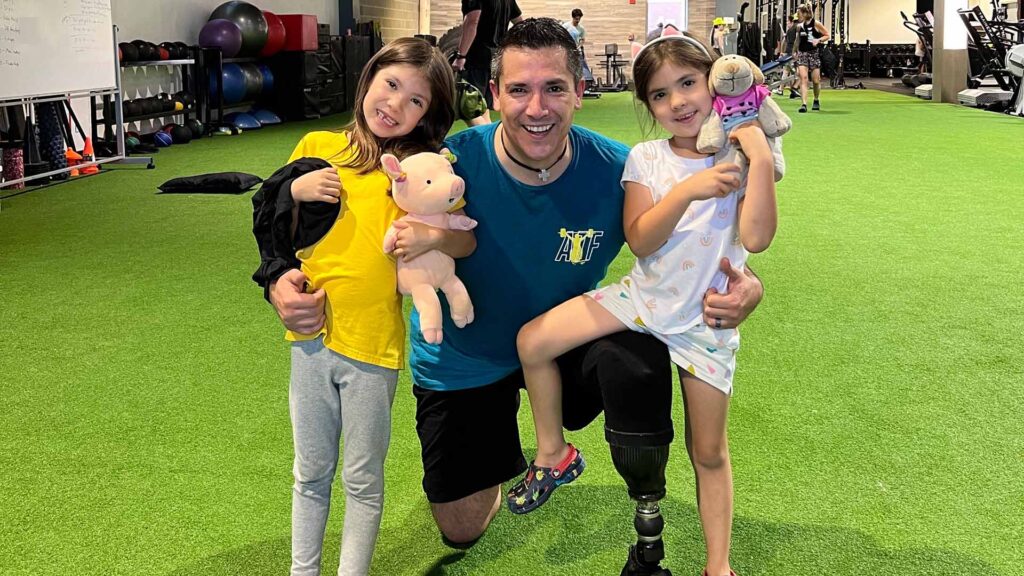
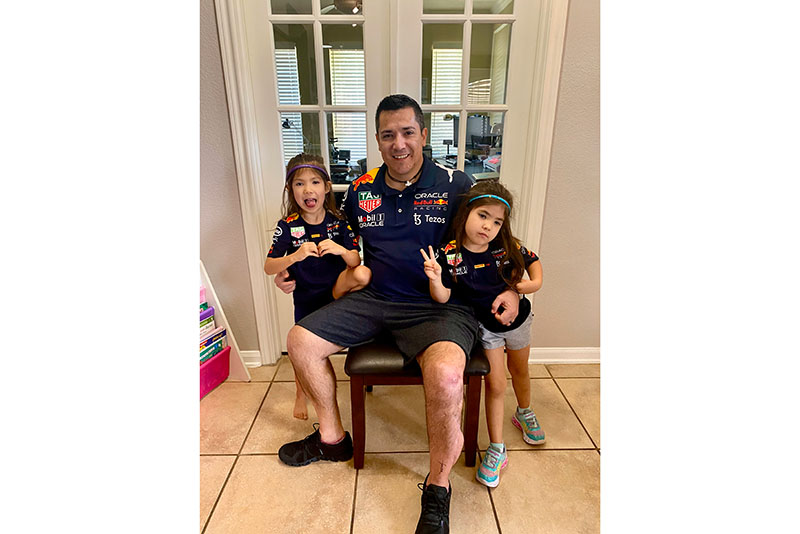
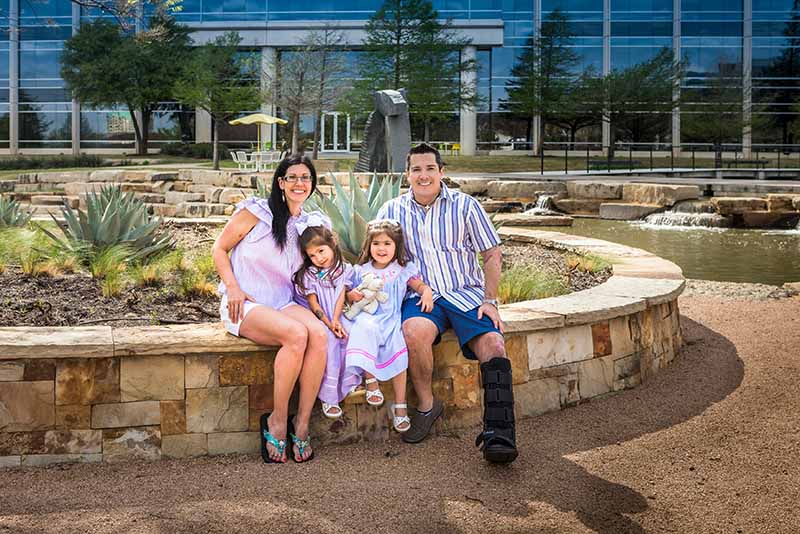
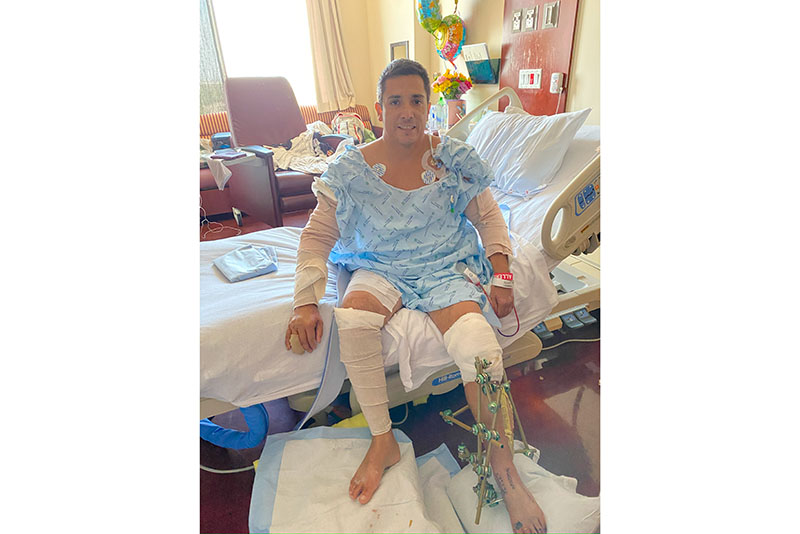
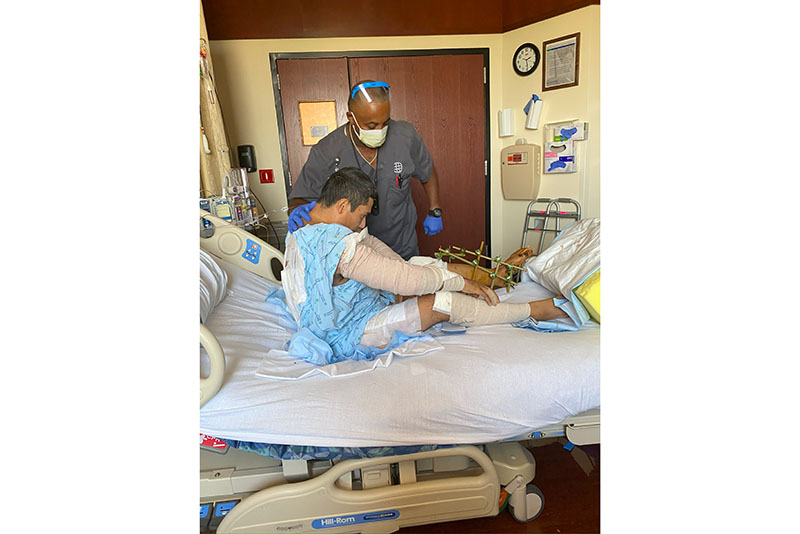
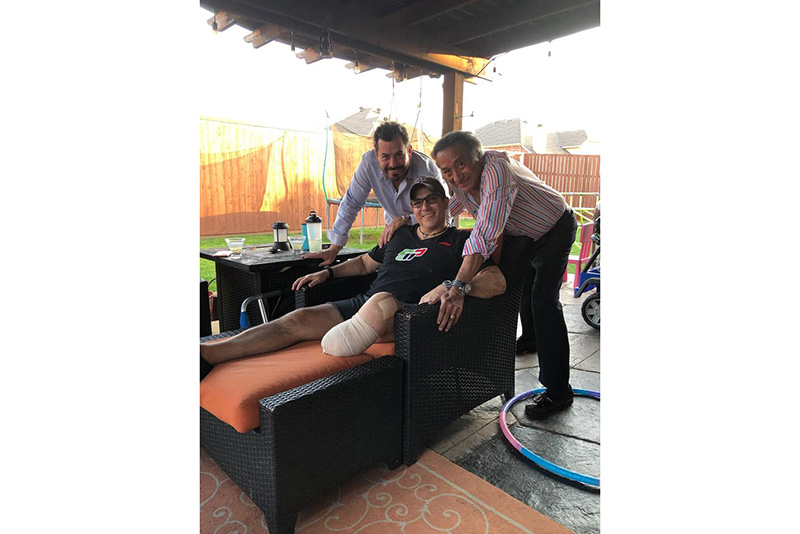
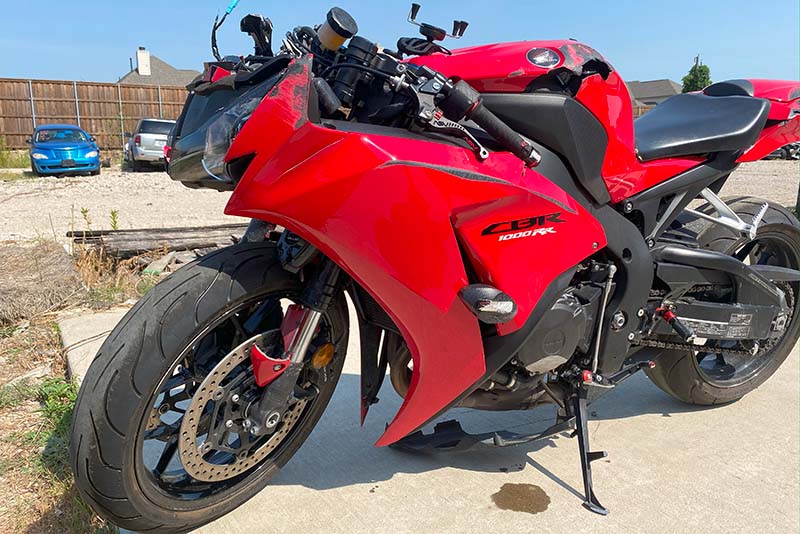
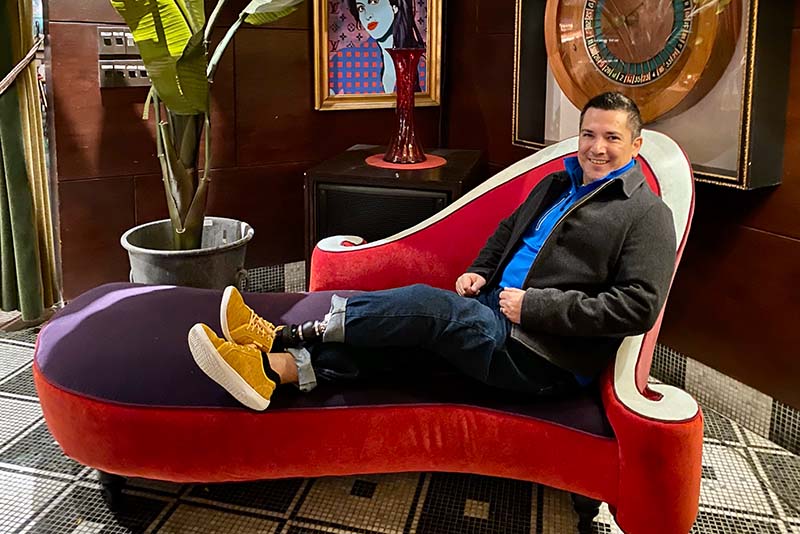
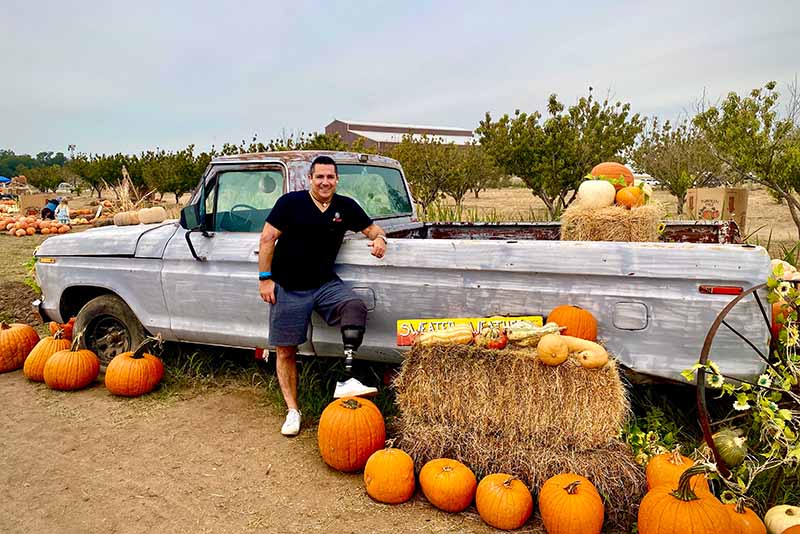
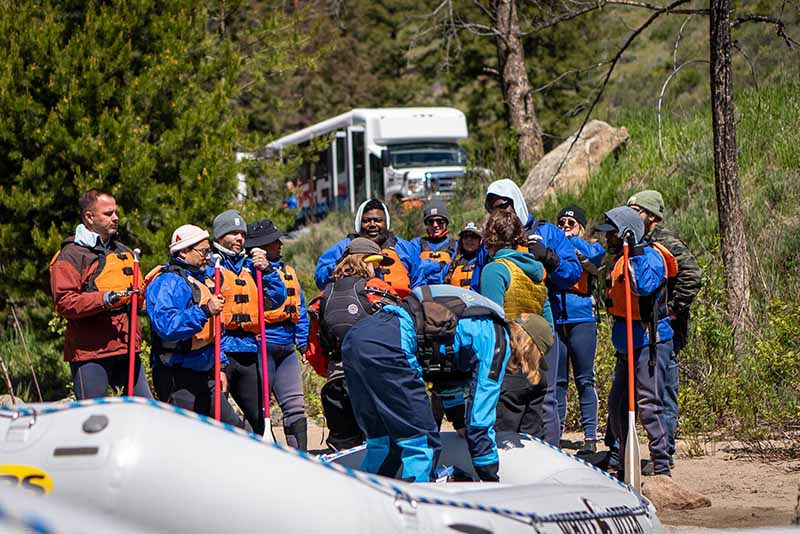
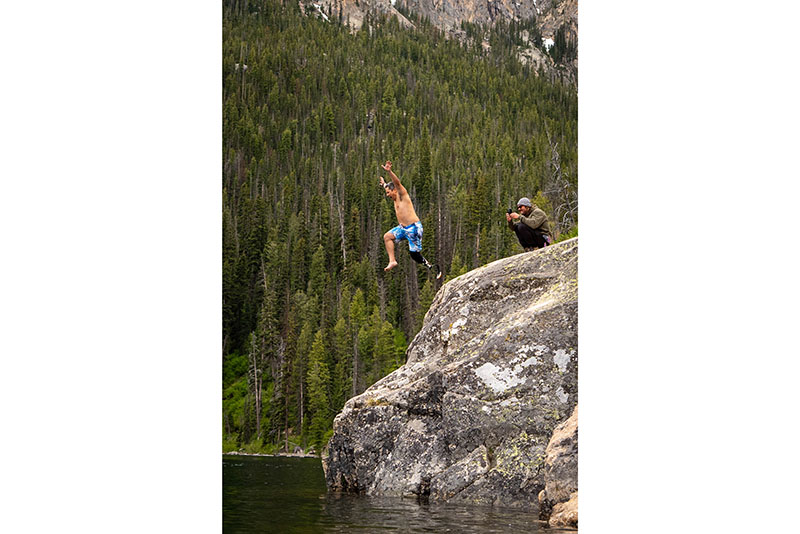
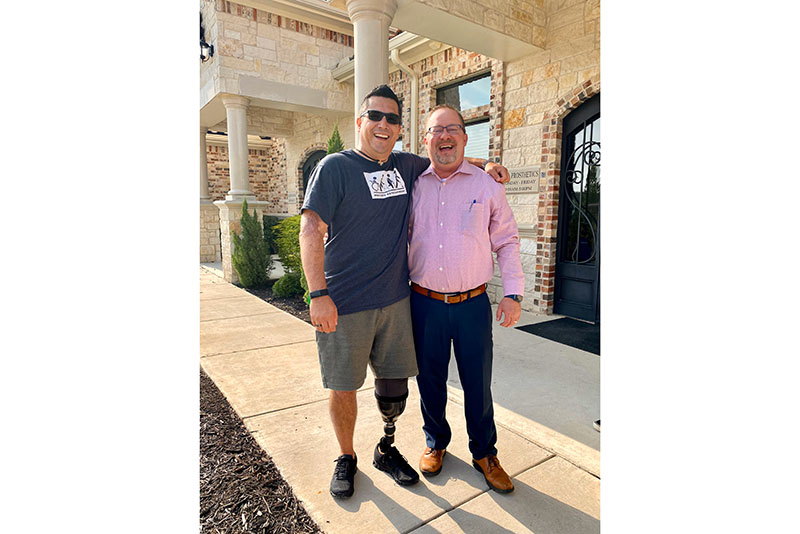
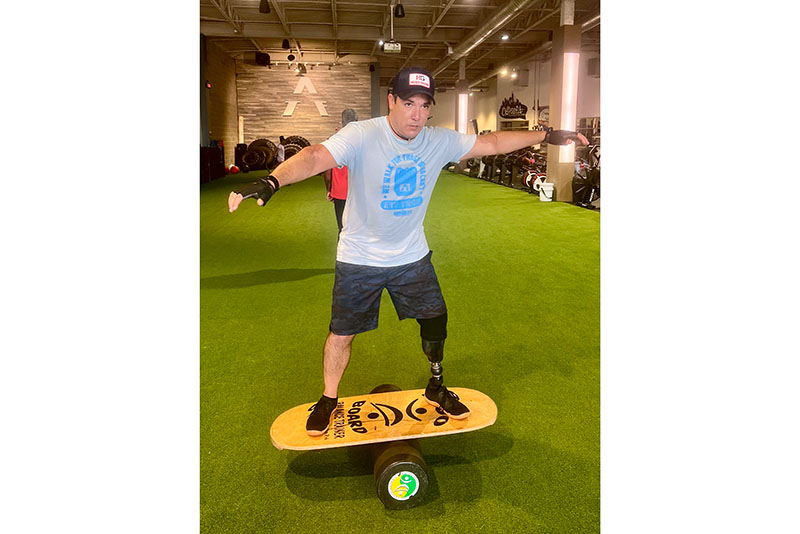
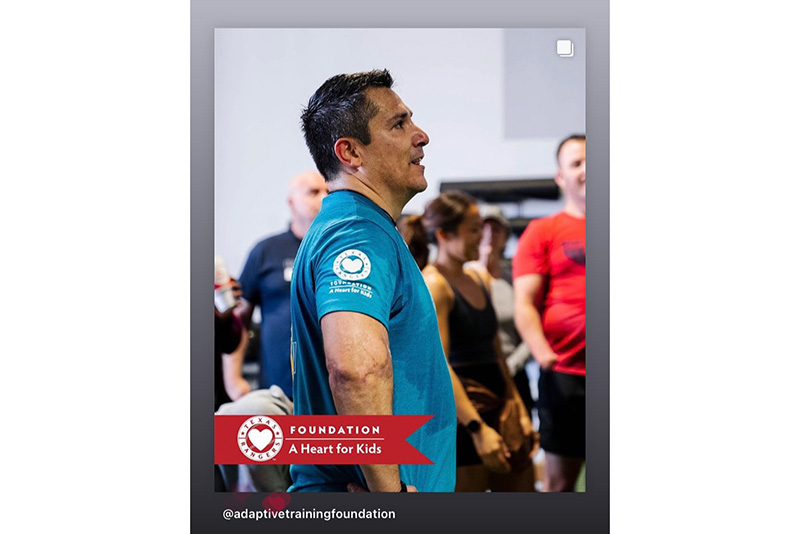
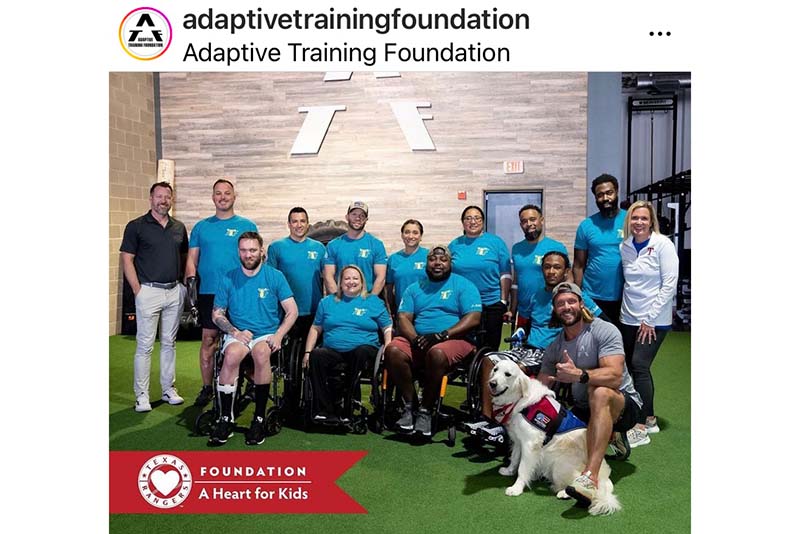
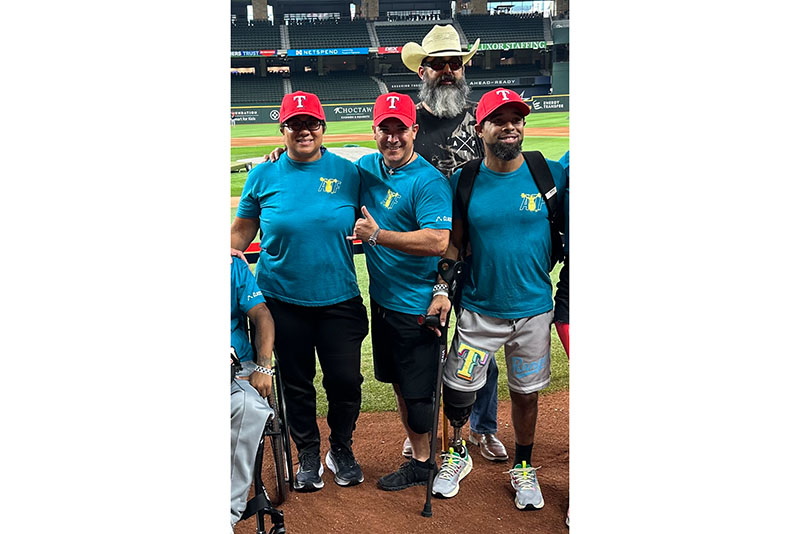
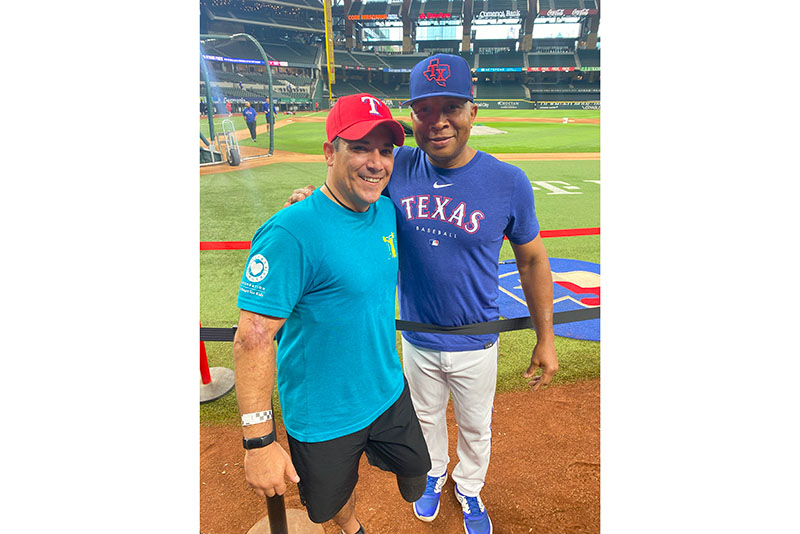
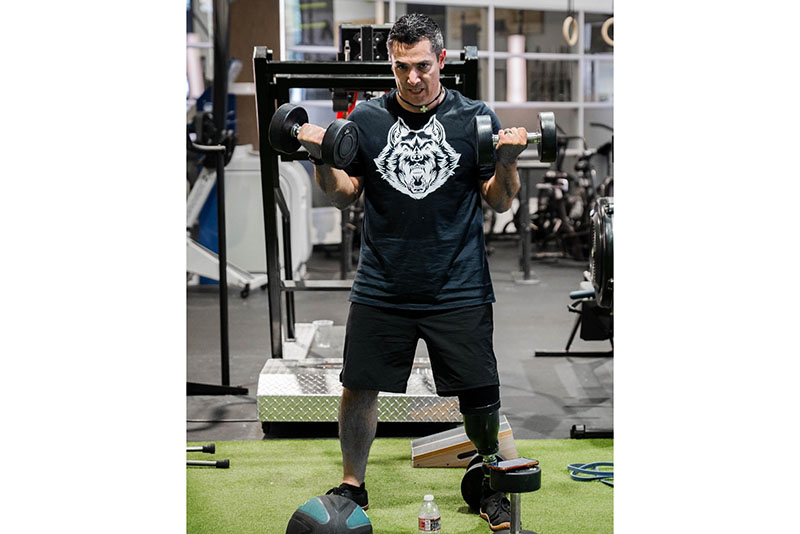
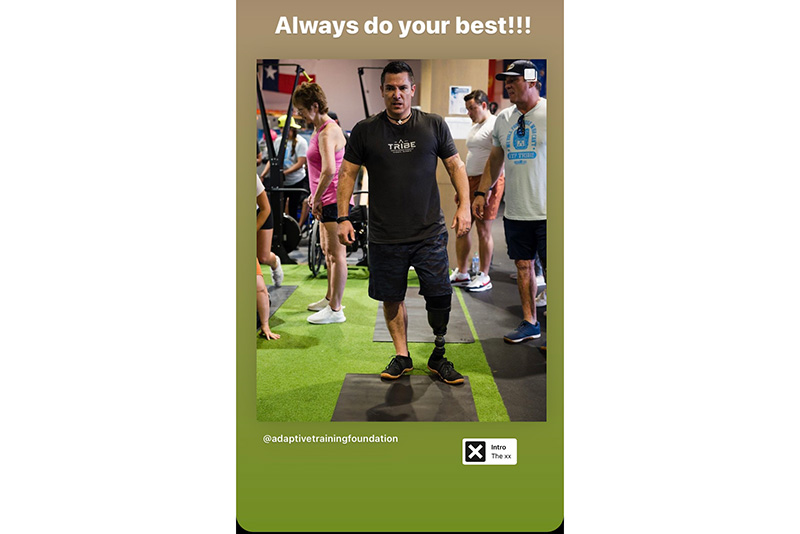
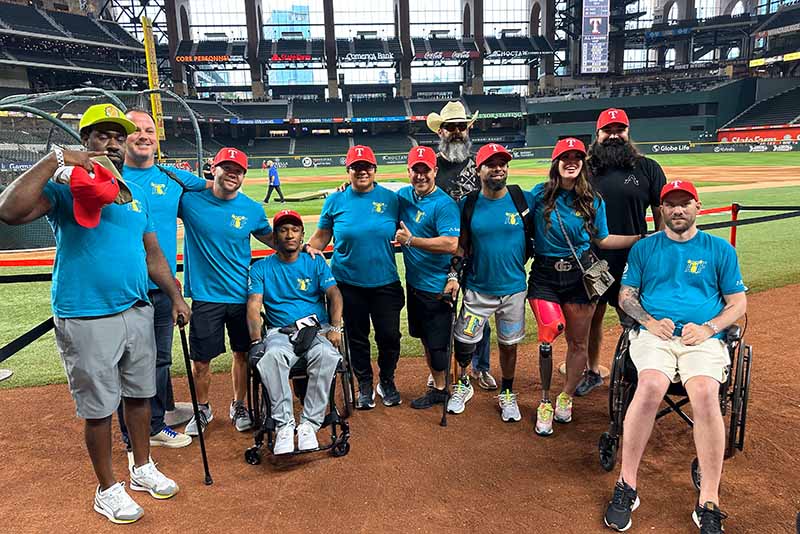
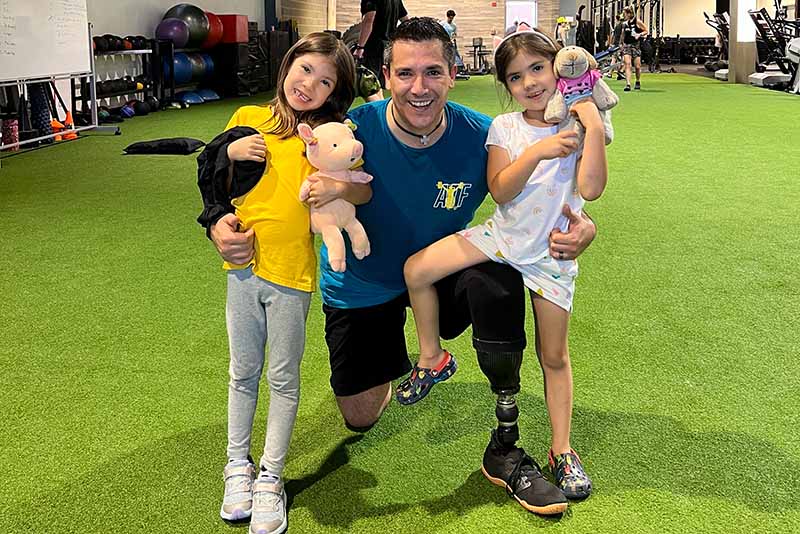
 Promoting and expanding diversity and inclusion is a strategic pillar of Haskell’s long-term vision and is foundational to creating a team member experience of significance, success and satisfaction. Haskell Together is our intentional and consistent initiative to promote open dialogue and bring about positive change.
Promoting and expanding diversity and inclusion is a strategic pillar of Haskell’s long-term vision and is foundational to creating a team member experience of significance, success and satisfaction. Haskell Together is our intentional and consistent initiative to promote open dialogue and bring about positive change.